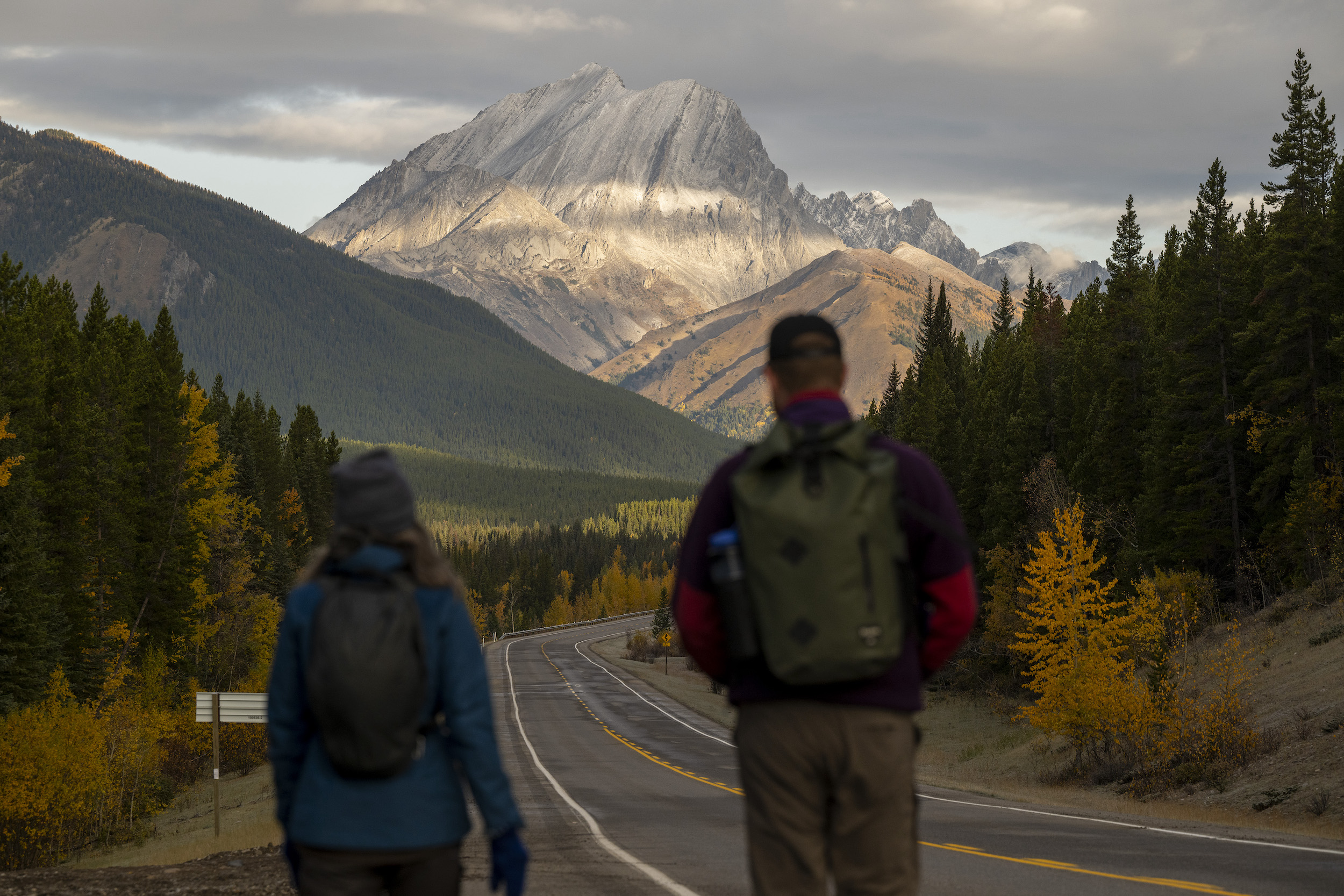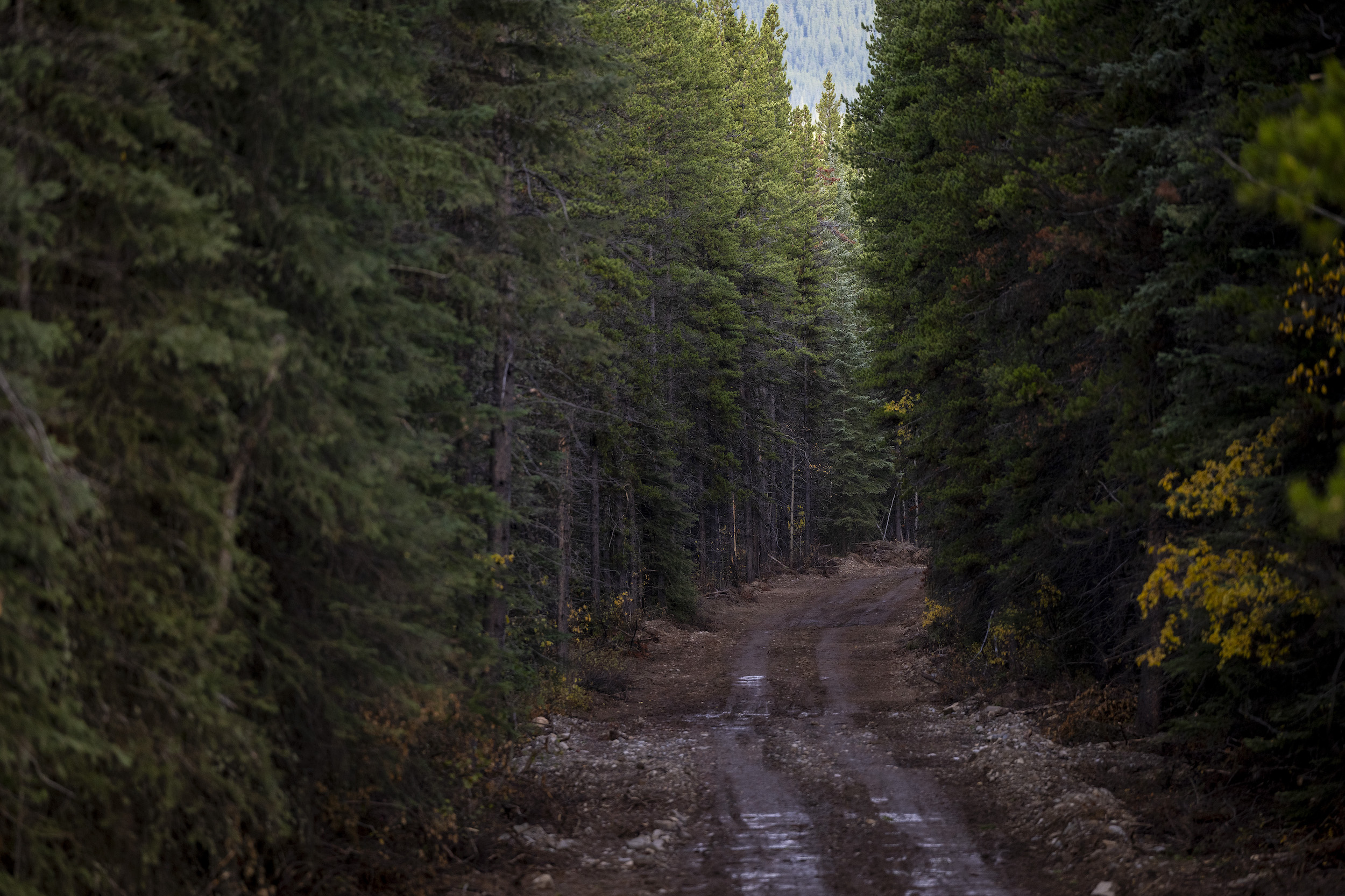
What’s scarier for Canadian communities — floods, or flood maps?
When maps showing areas most likely to flood are outdated, it puts people and property...
A controversial clearcut planned for a cherished valley in Alberta’s Kananaskis Country has been paused, following public outcry and the sale of the forestry company to B.C.-based West Fraser Timber.
The forest was to be cut starting this winter, through a wedge of land in the Highwood Pass surrounded by protected areas in a region where industry, recreation and conservation mix.
“Following West Fraser’s acquisition of Spray Lake Sawmills, now known as West Fraser Cochrane, we decided to pause this year’s harvest plan for the Highwood,” reads a statement from the company.
“We want to take time to meet with local groups that have expressed an interest in our planned activities.”
The company also said it intends to meet with Fisheries and Oceans Canada to discuss a controversial bridge over the Highwood River that was under investigation by the federal department.
The logging would have cleared approximately 1,100 hectares, the equivalent of 2,000 football fields, in a valley popular with residents of nearby Calgary, particularly as the larch trees dot the largely green landscape with explosions of yellow in the fall.
Opponents of the plan cited not only the impact to a popular recreation area, but the effects of logging on creeks, rivers, fish and wildlife.

Stand Up for Kananaskis, a group started to oppose the logging plans, points to the impact on fish species such as threatened westslope cutthroat and bull trout and say without adequate tree cover, water will rush off the hills, adding sediment to the river and destroying the natural water retention of the forest. It could result in more flooding, but also reduced flow in drier months — a key concern as Alberta faces down the likelihood of a severe drought this summer.
There was also frustration with the former owner of the logging lease for ignoring community concerns and for inadequate consultation.
West Fraser Cochrane declined an interview but re-sent the statement posted to its website.
“As a new owner, we wanted to meet with community groups that were reaching out to us and hear directly from them,” spokesperson Joyce Wagenaar wrote in response to follow-up questions from The Narwhal asking for more details.
“That is the purpose of the pause. We are continuing to meet with groups.”
Becky Best-Bertwistle with Stand Up for Kananaskis, said they have not sat down with the new owner yet “after many emails and weeks of waiting” for a meeting, but they’re hopeful to have a conversation in the coming months.
The organization is cautiously optimistic about the pause.
“It’s more than we could have hoped for when we got together in August of last year to try and stop it,” Best-Bertwistle said, adding time will tell if the company is serious about public consultations.
The Canadian Parks and Wilderness Society, which also opposes logging in the area, had a meeting with West Fraser earlier in February.
“We do see this as a positive step,” Joshua Killeen, a conservation specialist with the organization, said in an interview.

“We definitely think that they have made this pause in reaction to the amount of public concern and the amount of people contacting them about this particular cut,” he added.
Killeen also said it’s too early to tell what will happen moving forward, but that the company did seem aware there was considerable frustration with a lack of engagement in the past.
“At least at a high level, they are willing to meet and to discuss these issues, which is a good thing,” he said. “But, again, it will all come down to what actually happens operationally and what changes will they actually be willing to make?”
The nearby Stoney Nakoda First Nations were also upset with the lack of consultations as noted in the company’s own management plan for the area.
The consultation office for the Stoney Nakoda Nations did not respond to a request for an interview by publication time.
The bridge cited by West Fraser in its statement has been a source of conflict between the company and those who oppose the logging, with the former saying the work impacted the fish-bearing waterway and was done without proper permits.
The company initially denied any wrongdoing, but Fisheries and Oceans Canada, which oversees impacts on fish-bearing waterways, initiated an investigation and signs went up near the site late last year indicating a new consultation process.
The federal department said the investigation is ongoing but it is not able to provide additional details.
Killeen said the Canadian Parks and Wilderness Society has conducted research showing the whole area is critical habitat for threatened bull trout so reviews should be required for any and all water crossings.
West Fraser hasn’t said it will forego harvesting trees in the area, but that it does want to listen to community feedback.
“We will work to incorporate actionable information that we garner through these conversations into our future harvest plans for the Highwood,” it said in its statement.
Killeen said he didn’t get the impression the company would cancel the harvest in the area, but there could be some compromises, including a reduced harvest.
“We still take the view that this area is such a sensitive area that this large-scale, clear-cut harvest is inappropriate, full stop,” he said.
“It just remains to be seen how those conversations go with the company, and whether they are willing to consider taking this area off the books.”
Updated on Feb. 21, 2024, at 2:35 p.m. MT: This story was updated with a response from Fisheries and Oceans Canada, saying an investigation related to the logging activity is ongoing.
Enbridge Gas will face Waterloo Region in a hearing before the Ontario Energy Board to renew an agreement that would allow the company to continue...
Continue reading
When maps showing areas most likely to flood are outdated, it puts people and property...

We’re suing the RCMP for arresting a journalist on assignment for The Narwhal. It’s an...

As glaciers in Western Canada retreat at an alarming rate, guides on the frontlines are...